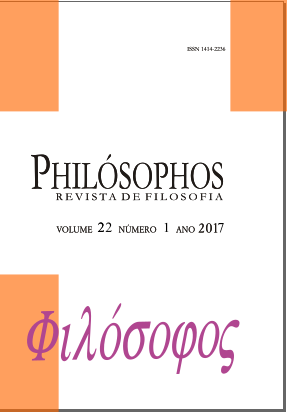SOBRE CONHECIMENTO E JUSTIFICAÇÃO DE CRENÇAS MORAIS
DOI:
https://doi.org/10.5216/phi.v22i1.44768Palavras-chave:
Epistemologia moral, Externalismo epistêmico, Justificação de crenças, Metaética.Resumo
Como em epistemologia, a discussão entre internalistas e externalistas sobre a justificação de crenças também pode ser aplicada em casos morais. Poderíamos imaginar, por exemplo, situações nas quais um agente adquire crenças morais por sorte ou acidentalmente; de um modo que não poderíamos afirmar que ele estaria autorizado em manter essas crenças. Uma posição tipicamente externalista seria afirmar que o status epistêmico das crenças morais de um agente não depende daquilo que está disponível a esse agente. Ao contestar a necessidade da evidência, defendida por internalistas, o externalismo epistêmico questiona uma tradição epistemológica que remonta a Descartes. Em outras palavras, podemos estar justificados sem o saber. Embora a relação entre o problema do conhecimento e as crenças morais não seja uma novidade, a epistemologia moral, entendida como um ramo da Metaética, ainda é um campo de estudo pouco explorado. Depois de uma breve apresentação do problema da justificação de crenças morais, comentarei sobre uma interessante analogia do famoso caso do chicken-sexter.
Downloads
Downloads
Publicado
Como Citar
Edição
Seção
Licença
Autores que publicam nesta revista concordam com os seguintes termos:
- Autores mantêm os direitos autorais e concedem à revista o direito de primeira publicação, sendo o trabalho simultaneamente licenciado sob a Creative Commons Attribution License o que permite o compartilhamento do trabalho com reconhecimento da autoria do trabalho e publicação inicial nesta revista.
- Autores têm autorização para assumir contratos adicionais separadamente, para distribuição não-exclusiva da versão do trabalho publicada nesta revista (ex.: publicar em repositório institucional ou como capítulo de livro), com reconhecimento de autoria e publicação inicial nesta revista.















